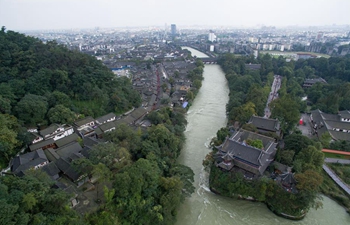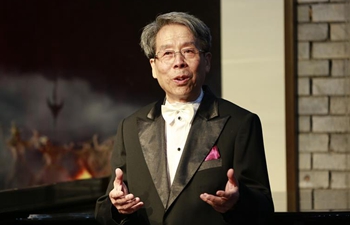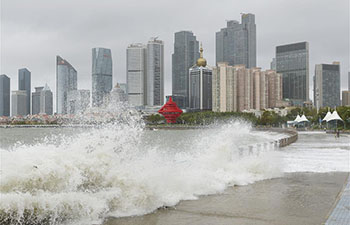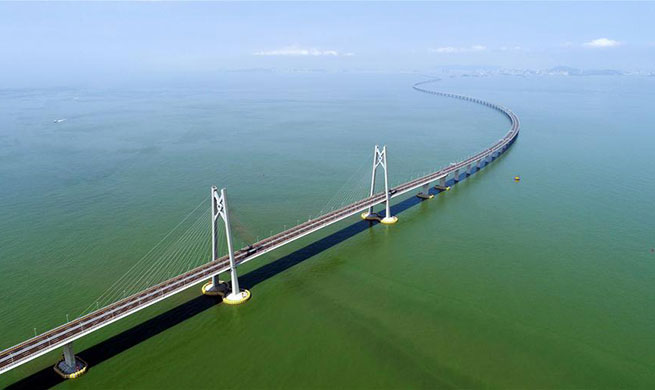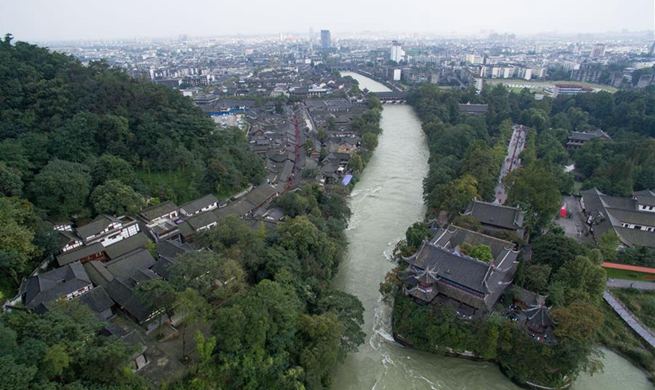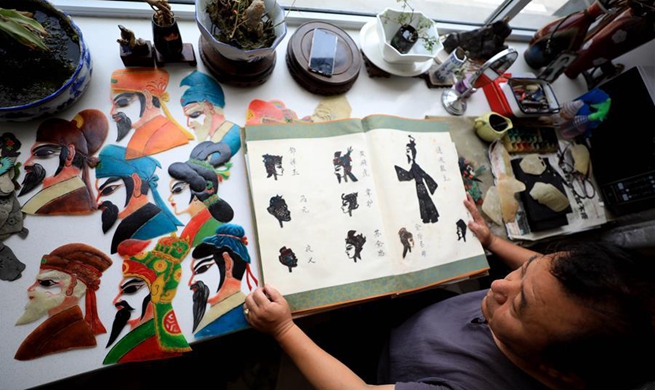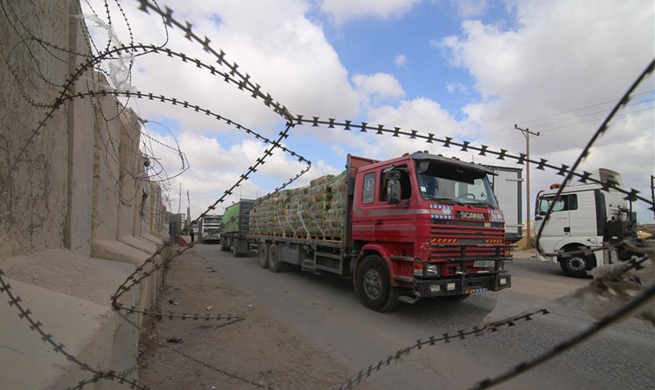HANGZHOU, Aug. 15 (Xinhua) -- "Where are you? Looking for Relatives of Lisbon Maru POWs."
Fang Li, a Chinese film-maker, posted this notice in major British newspapers last month, seeking relatives of 828 British soldiers who died when a Japanese prison ship sank in the East China Sea during World War II.
He has so far received about 200 replies and has visited more than 30 families in Britain. He hoped to keep these last memories in a documentary.
Fang, 64 years old, first heard the story in 2014 from a ferry captain in the Zhoushan archipelago, near the site of the sinking.
More than 1,800 prisoners of British army were aboard the unmarked Lisbon Maru freighter, sailing from Hong Kong to Japan, when it was torpedoed by an American submarine in October 1942.
As the vessel slowly slipped into the water, Japanese troops locked the unarmed men in the hold and shot those who tried to escape.
The Japanese fled to another ship, where they kicked off British POWs who followed them.
All told, 828 British soldiers died.
"If you had been to hell, you'd know what it was like. It was hell," Dennis Morley, 98, the British survivor of the disaster, told Fang Li.
A group of Chinese fishermen in 46 sampans spotted the men in the water. Over 65 desperate journeys, they saved 384 British soldiers from drowning, according to local wartime records.
"They had extraordinary courage and rescued hundreds under Japanese fire," Major Brian Finch, 77, told Fang.
Finch wrote a book about the Lisbon Maru in October 2017 and became the documentary adviser.
"The story is not widely known. The people who lived didn't talk about their experiences mostly until very later," Finch said in an interview.
The Japanese later recaptured 381 of the POWs in China and many died of disease, starvation and exhaustion in Japan.
"I couldn't believe that a thousand young lives were lost in those waters," said Fang. "They were supposed to enjoy life at that age just as my son does now."
Fang, who is also a geophysical engineer, started an investigation. He led his team to Dongji Island, Zhoushan, and found the ship with sonar in 2016.
"We were just 30 meters from the wreck. At that moment, I felt so close to those boys."
Then he had the idea to find relatives of the fallen soldiers, to tell their stories and make a documentary film. And, if possible, bring them home.
The notices elicited a theme from several families.
"He's not there; that's just a stone," said Amanda Christian of her grandfather's "grave." "If you send a man to war you should bring him home, dead or alive."
"He would rather be with his comrades," Fang was told by Barbara Stagg, whose father George Edmond Wilkinson survived, but spent a lifetime struggling with the trauma.
Fan Ming, director of the documentary, said interviewing the families was heart-rending: "Imagine your friends dying in front you, struggling to live and giving up hope -- and families torn apart."
Ron Brooks, 83, was aged 7 when he lost his father, Charlie Brooks. The old man wept when reading his father's last letter. He still wants his father brought home.
The stories confirmed Fang's determination to finish the documentary, The 828 Unforgotten.
In 2005,nother Lisbon Maru survivor, Charles Jordan, took his family to Zhoushan, east China's Zhejiang Province, so he could to thank his savior, Wu Lanfang. Both men have since passed away, but their reunion was recorded in photographs.
Fang's team plans to go to Canada later in August to interview the other remaining survivor.
Fang hopes to complete the film in time for the 100th birthday of Dennis Morley on October 26, 2019.
"These men are almost a hundred years old. Time is running out. We feel history is slipping away," he said.




